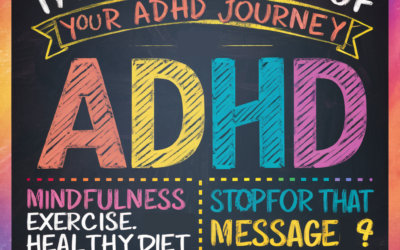Emotional regulation is a critical skill that allows us to navigate life's challenges with grace and resilience. When we can effectively manage our emotions, we are better equipped to make sound decisions, maintain healthy relationships, and achieve our goals. However, for many people, emotional control can be an elusive and daunting task.
Fortunately, there are proven strategies and techniques that can help us develop mastery over our emotions. By incorporating these practices into our daily lives, we can cultivate a greater sense of emotional awareness, self-control, and overall well-being.
Understanding Emotional Regulation
At its core, emotional regulation is the ability to recognize, understand, and manage our emotional responses in a healthy and constructive manner. It involves the conscious effort to modulate the intensity, duration, and expression of our feelings, without suppressing or avoiding them altogether.
Effective emotional regulation is not about eliminating or denying our emotions, but rather about finding a balanced approach that allows us to experience and express them appropriately. This is a crucial skill, as our emotions play a vital role in our decision-making, relationships, and overall quality of life.[1]
When we struggle with emotional regulation, it can lead to a range of challenges, such as relationship conflicts, difficulty at work or school, and even physical and mental health issues. Emotional dysregulation has been linked to various mental health conditions, including anxiety, depression, and borderline personality disorder.[2]
Key Emotional Regulation Skills
Mastering emotional control requires the development of several key skills. Here are five essential strategies to focus on:
1. Create Space Between Trigger and Response
When faced with a triggering event or situation, it's important to create a pause between the stimulus and your reaction. This allows you to engage your prefrontal cortex, the part of the brain responsible for rational decision-making, rather than relying solely on the emotional limbic system.[3]
By taking a few deep breaths or engaging in a brief mindfulness exercise, you can interrupt the automatic emotional response and choose a more measured and constructive course of action. This skill of "responding, not reacting" is a hallmark of emotional control.[1]
2. Cultivate Emotional Awareness
Developing a keen sense of self-awareness is crucial for effective emotional regulation. Take the time to notice and acknowledge your emotions as they arise, without judgment or criticism. Naming and labeling your feelings can help reduce their intensity and make them more manageable.[3]
Pay attention to the physical sensations associated with your emotions, such as a racing heart or tightness in your chest. This somatic awareness can provide valuable clues about the underlying causes of your emotional experiences.
3. Practice Acceptance and Validation
Rather than trying to push away or suppress your emotions, practice acceptance and validation. Recognize that all emotions, even the so-called "negative" ones, serve a purpose and are a natural part of the human experience.[3]
By embracing your emotions with compassion, you create space for them to be processed and integrated, rather than bottled up or expressed in unhealthy ways. This acceptance can also help you develop greater empathy and understanding for the emotional experiences of others.[1]
4. Engage in Emotion-Focused Coping Strategies
When faced with challenging emotions, it's important to have a repertoire of healthy coping strategies at your disposal. This may include activities like journaling, engaging in physical exercise, or seeking social support from trusted friends or family members.[2]
Mindfulness-based practices, such as meditation or deep breathing, can also be highly effective in regulating emotions by cultivating present-moment awareness and reducing physiological arousal.
5. Reframe Your Perspective
The way we interpret and make meaning of events can have a profound impact on our emotional responses. By consciously reframing our perspective, we can shift the meaning we assign to a situation and, in turn, influence the emotions we experience.[4]
For example, if you receive negative feedback at work, you could choose to view it as an opportunity for growth and improvement, rather than a personal failure. This cognitive reappraisal can help you respond with greater resilience and adaptability.[1]
Strategies for Mastering Emotional Control
Now that we've explored the key skills of emotional regulation, let's look at some practical strategies for mastering emotional control:
1. Practice Mindfulness and Meditation
Mindfulness-based practices, such as meditation, have been shown to be highly effective in enhancing emotional regulation. By cultivating present-moment awareness and acceptance, you can develop the ability to observe your emotions without becoming overwhelmed by them.
Start with short, daily meditation sessions, focusing on your breath or a simple mantra. As you become more comfortable with the practice, gradually increase the duration and explore different mindfulness techniques, such as body scans or loving-kindness meditation.[3]
2. Develop Emotional Intelligence
Emotional intelligence (EQ) is the ability to recognize, understand, and manage your own emotions, as well as the emotions of others. By enhancing your EQ, you can gain greater insight into the drivers of your emotional experiences and develop more effective strategies for regulating them.[1]
Engage in activities that foster emotional self-awareness, such as journaling, therapy, or coaching. Additionally, practice active listening and empathy to deepen your understanding of the emotional experiences of those around you.[2]
3. Establish Healthy Routines and Habits
Maintaining a balanced lifestyle with consistent self-care practices can significantly enhance your ability to regulate your emotions. Ensure that you are getting enough sleep, eating a nutritious diet, and engaging in regular physical activity.[3]
Incorporate stress-management techniques, such as yoga, deep breathing, or progressive muscle relaxation, into your daily routine. These practices can help you manage the physiological effects of intense emotions and maintain a sense of calm and control.
4. Seek Social Support
Cultivating a strong support network can be a powerful tool in mastering emotional control. Surround yourself with people who can provide a listening ear, offer emotional validation, and help you gain a fresh perspective on challenging situations.[2]
Consider joining a support group or engaging in therapy, where you can learn from the experiences of others and receive guidance on developing effective emotional regulation strategies.[1]
5. Embrace Emotional Flexibility
Emotional regulation is not about eliminating or suppressing emotions, but rather about developing the flexibility to experience and express them in a healthy and adaptive manner. Embrace the full range of your emotional experiences, and be willing to adjust your strategies based on the specific situation and your individual needs.[3]
What works for one person may not work for another. Experiment with different techniques and be patient with yourself as you navigate the journey of emotional mastery.
The Benefits of Mastering Emotional Control
Developing the ability to effectively regulate your emotions can have a profound impact on various aspects of your life. Here are some of the key benefits of mastering emotional control:
1. Improved Relationships: When you can manage your emotions, you are better equipped to communicate effectively, resolve conflicts, and build stronger, more fulfilling connections with others.[1]
2. Enhanced Decision-Making: Emotions can significantly influence our decision-making processes. By regulating your emotions, you can make more rational, well-informed choices that align with your values and long-term goals.[4]
3. Increased Resilience: Emotional control allows you to navigate life's challenges with greater adaptability and bounce back from setbacks more quickly. This can lead to a greater sense of personal growth and well-being.
4. Better Mental and Physical Health: Effective emotional regulation has been linked to reduced symptoms of anxiety, depression, and other mental health conditions. It can also contribute to improved physical health by mitigating the negative physiological effects of intense emotions.[2]
5. Greater Productivity and Performance: When you can manage your emotions, you are less likely to be derailed by emotional outbursts or distractions, allowing you to focus on your work or other tasks with greater efficiency and effectiveness.[1]
Mastering emotional control is a lifelong journey, but the rewards are well worth the effort. By incorporating the strategies and techniques outlined in this article, you can cultivate a greater sense of self-awareness, resilience, and overall well-being, ultimately leading to a more fulfilling and successful life.
Citations:
[1] https://esoftskills.com/emotional-regulation/?amp=1
[2] https://www.tonyrobbins.com/ask-tony/cycle-of-meaning/
[3] https://psychcentral.com/health/emotional-regulation
[4] https://www.skillsyouneed.com/rhubarb/emotional-mastery.html
[5] https://www.healthline.com/health/how-to-control-your-emotions
The Audiobook Market’s Adaptation to Cultural Changes
Today,...
The New Midlife Crisis: Navigating the Challenges of Middle Age
In the...
Stop Overthinking and Anxiety: Practical Tips to Quiet Your Mind
How many...
How to Find the Right Work and Relationship Partner with the 37% Rule.
Today...
How Our Brains Turned Fools Woke – Dr. Iain McGilchrist
Here are...
The Unique Challenges of a WLW Breakup
A WLW...
Musashi Miyamoto – Review of ‘The Way of Walking Alone’
Musashi...
The Compassionate Approach: How to Break Up With Someone Respectfully
Breaking...
Managing ADHD: Strategies for Improving Focus, Organization, and Productivity
Attention-D...
Tips for Improving Retention-Based Video Editing
Before...























